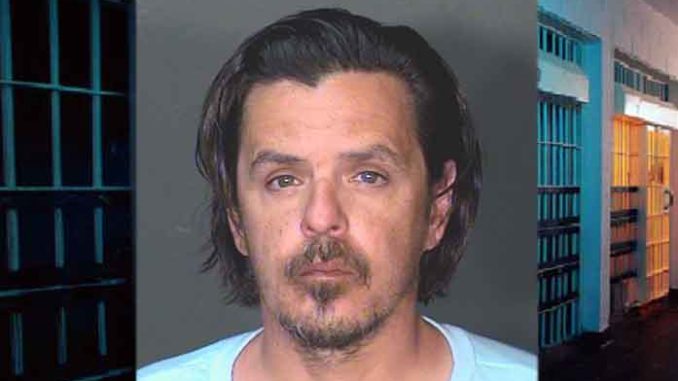
A Bisbee man granted a new trial earlier this year by the Arizona Court of Appeals walked out of the Cochise County jail a free man earlier this month after accepting a plea deal to resolve the case.
James Edward Earley II was convicted at trial last year of a Class 2 felony for transporting 57 pounds of marijuana on Nov. 7, 2016. He was sentenced to three-years in state prison but was granted a new trial by the court of appeals in April due to concerns with the prosecutor’s repeated comments about the fact Earley had not offered up an alibi nor mentioned exculpatory evidence prior to trial.
“Because the state improperly referred to Earley’s silence throughout the trial and we cannot conclude these errors were harmless, we reverse and remand for a new trial,” the 3-0 decision stated. The decision also describes the proof of Earley’s guilt as “not overwhelming”
But on June 1, Earley signed a plea deal in which he pleaded no contest to a lesser felony of possession of marijuana for sale instead of waiting months for a new trial. A no contest plea means a defendant does not admit guilt but agrees to be sentenced as if guilty.
Earley, 44, was resentenced in accordance to the plea deal to 471 days of incarceration, the exact number he had already served.
Court records show that on Nov. 7, 2016, a U.S. Border Patrol agent saw a truck driving slowly along the international border near Bisbee. A male driver stopped, then put something in the back of the truck and drove away. There was no clear view of the man.
The USBP agent lost sight of the vehicle before locating what he believed was the truck in the driveway of a Bisbee residence. Earley was standing next to the truck, in which several bundles of marijuana were found. The truck was owned by Earley’s father and the house belonged to his grandmother.
Several months later, prosecutors charged Earley with marijuana transportation.
Upon being arrested, Earley invoked his right to remain silent as per the Miranda Warning. But at trial, he testified to borrowing the truck to a friend on Nov. 7, 2016 and that when the friend returned the truck he told Earley that he had “picked up a load and the cops are on me.” The friend died before the trial.
The prosecutor repeatedly commented in front of the jury to Earley’s decision to not speak with investigators about his activities that date. The trial judge denied a mistrial despite several defense objections.
After his conviction, Earley was granted a court-appointed attorney to appeal the conviction on the grounds that his Fifth Amendment right to remain silent after arrest was violated at trial.
The court of appeals agreed, noting the U.S. Supreme Court has held there is a “fundamental unfairness” in using a defendant’s invocation of the Fifth Amendment against him at trial, and that such use is a violation of the Due Process Clause of the Fourteenth Amendment.
